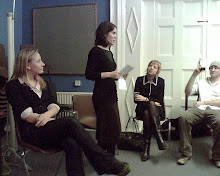(as printed in Trinity News)
As International Women’s Day approaches, it might be fitting to give some thought as to what being female in Ireland has meant over the last century. All told, it has not always been a positive thing. The efforts of Irish women during the War of Independence were not rewarded in the aftermath, and laws restricting women’s roles in society became far tighter. In De Valera’s 1937 Constitution, Irish women were cast first and foremost as mothers confined to the home, the philosophy of which was brought about by the burgeoning influence of the Catholic Church on the nation. While the Church no longer exerts the same power, the ideology which enabled clerical child abuse and the Magdalene asylums in the past still informs the opinions of those who do not trust Irish females to exercise their own sexual and reproductive rights.
Slowly but surely, things are changing in Ireland. In September 2007, The Irish Times published the results of a poll which revealed that 54% of Irish women believe that it is time for the government to legislate for abortion on Irish soil, with majorities in most age groups. This figure increased to 69% in the instance of a threat to the woman’s life. Although the Irish government has reacted with conspicuous indifference in light of these figures, the Pro-Choice movement continues with optimism for the future with the support of progressives such as Ivana Bacik and David Norris.
2007 was a particularly dramatic year in the history of the abortion debate in Ireland. April saw the eruption of the ‘Miss D’ case, in which a 17 year old girl placed under State care was denied the right to travel to abort the foetus she was carrying. An ultrasound had revealed that the foetus had developed anencephaly (a fatal condition which renders a large part of the brain missing). The HSE contacted gardai to ensure that Miss D would not be able to leave Ireland to seek an abortion, unless it became clear that she was at risk of committing suicide. This evaluation was challenged by Miss D at the High Court. She told the assessing psychiatrist, “It’s my body and I should be allowed to do with it what I want.” The HSE’s decision was overruled, and Mr Justice Liam McKechnie criticised the organisation’s actions in attempting to stifle the girl’s right to travel. It is unclear how many more cases like Miss D, Miss C and Miss X are required before the government feels it is time to confront this urgent issue.
Furthermore, 2007 saw Pro-Choice groups call for proper regulation of crisis pregnancy agencies. Choice Ireland intensified their picketing of rogue agencies run by Christian fundamentalists, which claim to offer unbiased advice to women dealing with unexpected pregnancies. However, the information given to the women seeking their advice is deliberately inaccurate and misleading as regards abortion procedures, and is specifically designed to frighten women already in crisis. The Sunday Tribune journalist Christine Bohan described what she experienced when she went undercover as a woman seeking advice at the Women’s Resource Centre (WRC) on Upper Dorset St., an organisation with strong connections to the fanatical Christian Solidarity Party. Bohan’s female advisor displayed to her a number of images of aborted foetuses, describing the various ways in which each had died. She then stated: “You’d be pregnant if they left a bit behind”. According to Choice Ireland’s extensive research into its activities, the agency has also been responsible for telling Irish women that they cannot have abortions abroad until they are at least eight weeks pregnant, in many cases eliminating the option to have an early medical abortion. Without any medical backup whatsoever, the agency cites abortion as a direct cause of cancer, inferitility, frigidity, congenital depression, alcoholism and child abuse. Under current Irish legislation, any group or individual is permitted to set up a ‘crisis pregnancy counselling service’ without any kind of governmental supervision or regulation. Although two consecutive Ministers for Health have condemned the actions of rogue agencies, nothing has been done by the government to protect the women at risk.
The Irish Times poll further reveals that 42% of Irish women know another woman who has had an abortion. Considering the stigma and silence which still surrounds abortion here, it is easy to conclude that the statistic is, in fact, higher than first thought. Over 120,000 Irish women have travelled to the UK to terminate their pregnancies since 1990. This number does not include the many Irish women who, out of a sense of shame or secrecy, do not provide Irish addresses at British clinics. Nor does it include those women who have travelled to places other than the UK (which, in many cases, is the cheaper option), or women who purchase home medical abortion pills from internet sites. This reflects the stark reality that thousands of Irish women are, in fact, having abortions, and that they need a free, non-judgemental, safe and legal service on Irish soil which adequately protects their sexual and reproductive rights.
If you want to be part of the effort, please email choiceireland@gmail.com.


No comments:
Post a Comment